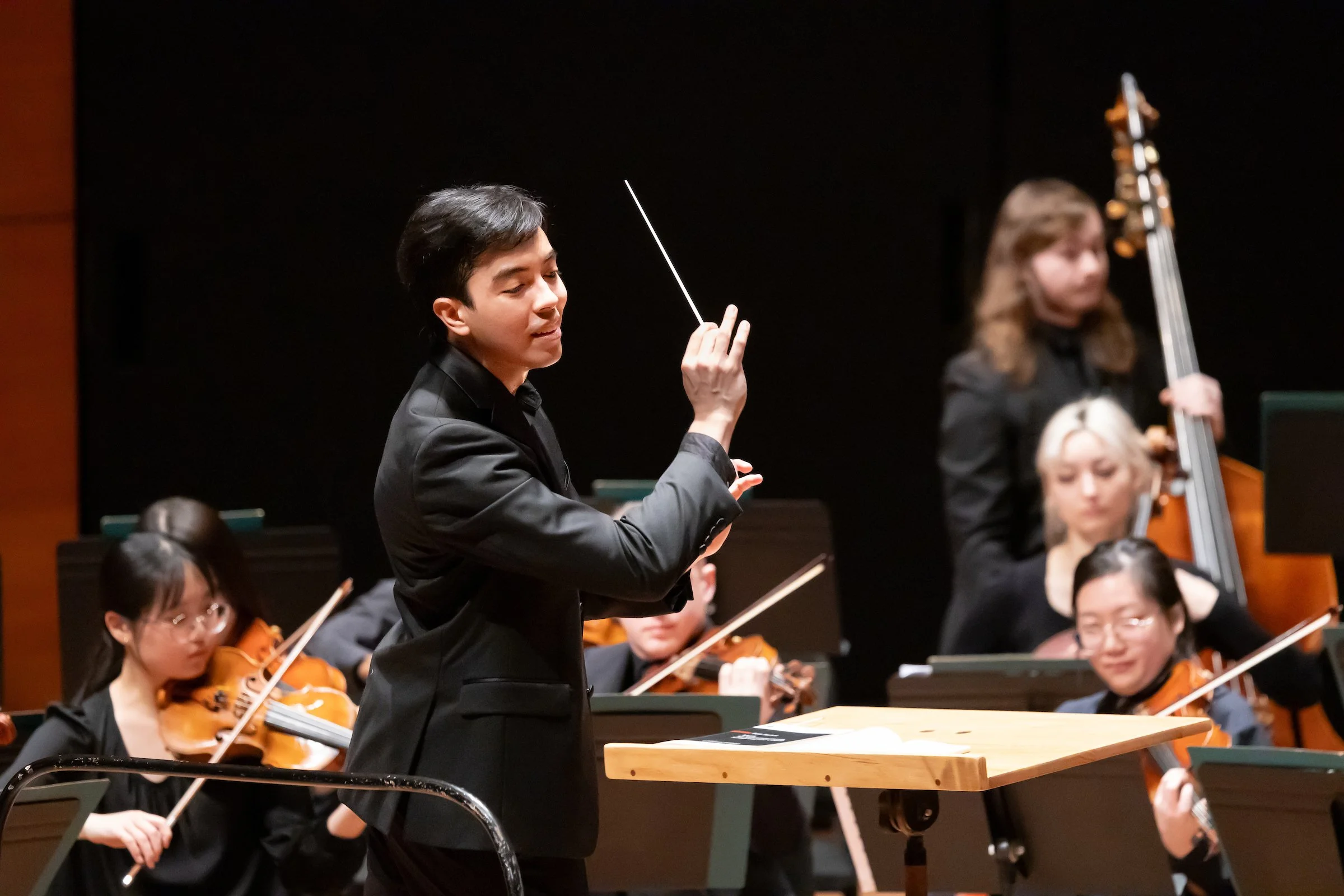Malaysian-born Tengku Irfan has appeared around the world as a conductor, pianist, and composer, and has been praised by The New York Times as “eminently cultured” and possessing “sheer incisiveness and power”. Recently, he made his Carnegie Hall debut conducting the Juilliard Orchestra in April 2024. Last year, he was invited as a guest conductor with the Malaysian Philharmonic Orchestra and was the assistant conductor of the National Youth Orchestra of the United States, working alongside eminent conductor Sir Andrew Davis. Recipient of the Bayreuth Stipendium Award this year, he was also the runner-up and audience prize winner of the 2021 Los Angeles Conducting Competition. He also worked as assistant and cover conductor for David Robertson, JoAnn Falletta, Jörg Widmann, Simone Young, and Speranza Scappucci.
In his earlier years as a pianist, he has performed with orchestras worldwide such as Seattle Symphony Orchestra, Sydney Symphony Orchestra, Estonian National Symphony Orchestra, among others. He won the Prokofiev Piano Concerto No. 2 competition in Aspen back in 2013, and was the resident pianist for the Aspen Contemporary Ensemble between 2014-2017. His compositions have also been premiered by orchestras and ensembles such as the New York Philharmonic, New York Virtuoso Singers, Singapore Symphony Orchestra, and the MDR Sinfonieorchester. He also won three ASCAP Morton Gould Awards as a composer.
Prior to his conducting studies, he was a double major in piano and composition at The Juilliard School, whose teachers included Yoheved Kaplinsky, Robert Beaser, and Ira Taxin. He recently graduated with a Masters of Music in Orchestral Conducting, where he studied with David Robertson. As part of the commencement, he was the inaugural recipient of the Robert Craft Igor Stravinsky Grant in Orchestral Conducting. During his years at Juilliard, he was a proud recipient of the Juilliard School Kovner Fellowship Award. Currently, he is the founder and music director of his own group, Ensemble Fantasque, promoting works from the 20th and 21st centuries, and underperformed pieces from earlier time periods.

